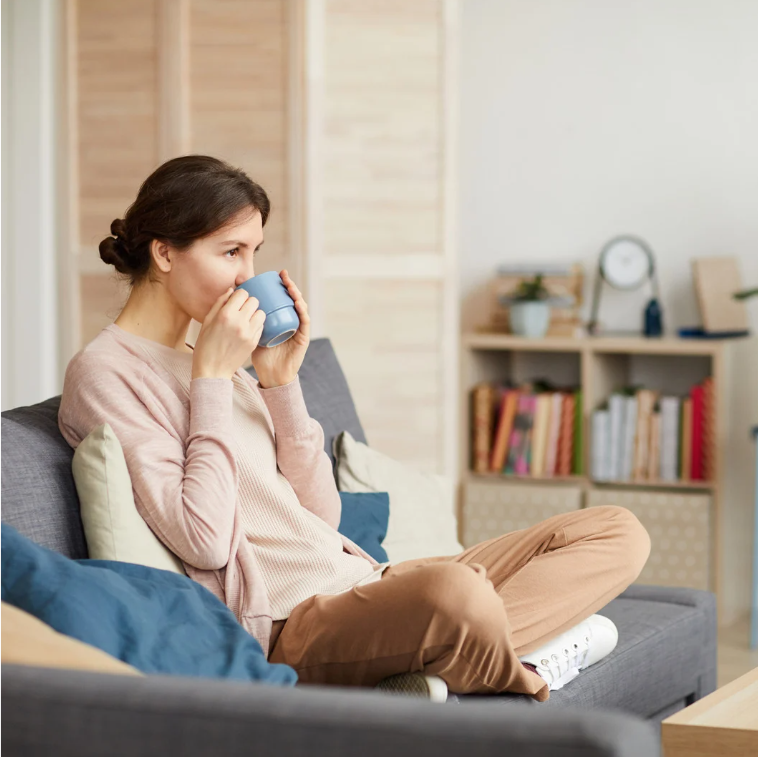

What the Research Says
The summaries below are informational and describe study outcomes on the ingredients themselves. They are not claims about our product. Individual results vary. These statements have not been evaluated by the FDA. This product is not intended to diagnose, treat, cure, or prevent any disease.

Calm Clarity
L-theanine
- In a randomized, double-blind, placebo-controlled trial, L-theanine reduced self-reported stress-related symptoms and improved some sleep-quality scores vs. placebo. PMC and MDPI
- Across human studies, L-theanine reduced psychiatric/stress-related symptoms versus control; PMC
- Trial reported lower perceived stress and improvements in objective sleep staging (less light sleep) vs. placebo. PMC
- Emerging evidence suggests L-theanine may improve sleep quality metrics in some studies

Relax & Restore
Magnesium
- Magnesium improved sleep-quality scores and some mood/activity measures vs. placebo European Society of Medicine and Sciety
- Supplemental magnesium is likely useful for mild anxiety and insomnia, especially when baseline magnesium is low PMC
- Magnesium has shown suggestive RCT evidence for improving insomnia symptoms; overall literature quality limited. PMC and BioMed Central
- Clinical appraisers note magnesium likely reduces sleep-onset latency in adults (SOR: B; meta-analysis of RCTs), while calling for more robust trials. Lippincott Journals

Cellular Support
Taurine
- Mechanistic and animal research suggests taurine interacts with GABA and glycine receptors, which are involved in calming neurotransmission.
- Taurine lowered clinic and 24-hr ambulatory blood pressure vs. placebo. AHA Journals
- Across 25 trials, taurine reduced systolic/diastolic BP and fasting glucose/triglycerides; authors note variability across doses and durations. Nature
- Taurine modulates inhibitory neurotransmission and has broad neurobiological effects; authors call for targeted human trials on mood/sleep. PMC and Lippincott Journals

Sleep's Gentle Ally
Glycine
- Taking Glycine before bedtime was associated with better subjective sleep quality, shorter sleep-onset latency, and less next-day sleepiness. Wiley Online Library+1 and SpringerLink
- After partial sleep loss, 3 g at bedtime reduced daytime fatigue/sleepiness and improved psychomotor vigilance vs. placebo. PMC
- Work in animals plus human data suggests glycine may promote sleep via thermoregulation (lowering core body temperature) and SCN signaling. PMC
- Summarizes evidence that pre-sleep glycine can improve sleep quality in healthy populations; mechanisms include NMDA receptor action in the SCN. PMC

Adapt, Recover, Restore
Ashwagandha
- Multiple randomized, placebo-controlled trials (225–600 mg/day) in adults showed reductions in stress, anxiety, and cortisol levels, along with improved mood and sleep quality. Office of Dietary Supplements and Lippincott
- A 2023 randomized, double-blind, placebo-controlled RCT found ashwagandha extract alleviated stress, anxiety, and improved quality of life through stress hormone modulation. BioMed Central
- A recent clinical trial reported that both acute and 30-day supplementation improved episodic memory, attention, executive function, and reduced tension and fatigue in healthy individuals. News-Medical
- Meta-analysis and individual RCTs indicate ashwagandha may support improved aerobic capacity, strength and recovery, VO₂ max, and general physical performance. Verywell Health, EatingWell, and FrontiersMDPI

Mood, Comfort & Balance
Vitamin B6
- In a randomized, double-blind, placebo-controlled trial involving young adults, B6 supplementation led to significant reductions in self-reported anxiety and a trend toward lower depression. PubMed and EurekAlert
- A recent RCT found that 80 mg/day of B6 across three menstrual cycles was associated with statistically significant reductions in mood-related PMS symptoms like anxiety, mood swings, and bloating. Office of Dietary Supplements
- Randomized, placebo-controlled trials using 30–75 mg/day have shown significant improvement in nausea during early pregnancy (“morning sickness”). Office of Dietary Supplements
- Multiple RCTs demonstrate that B6 effectively lowers plasma homocysteine, a biomarker linked to cardiovascular risk. Linus Pauling Institute

